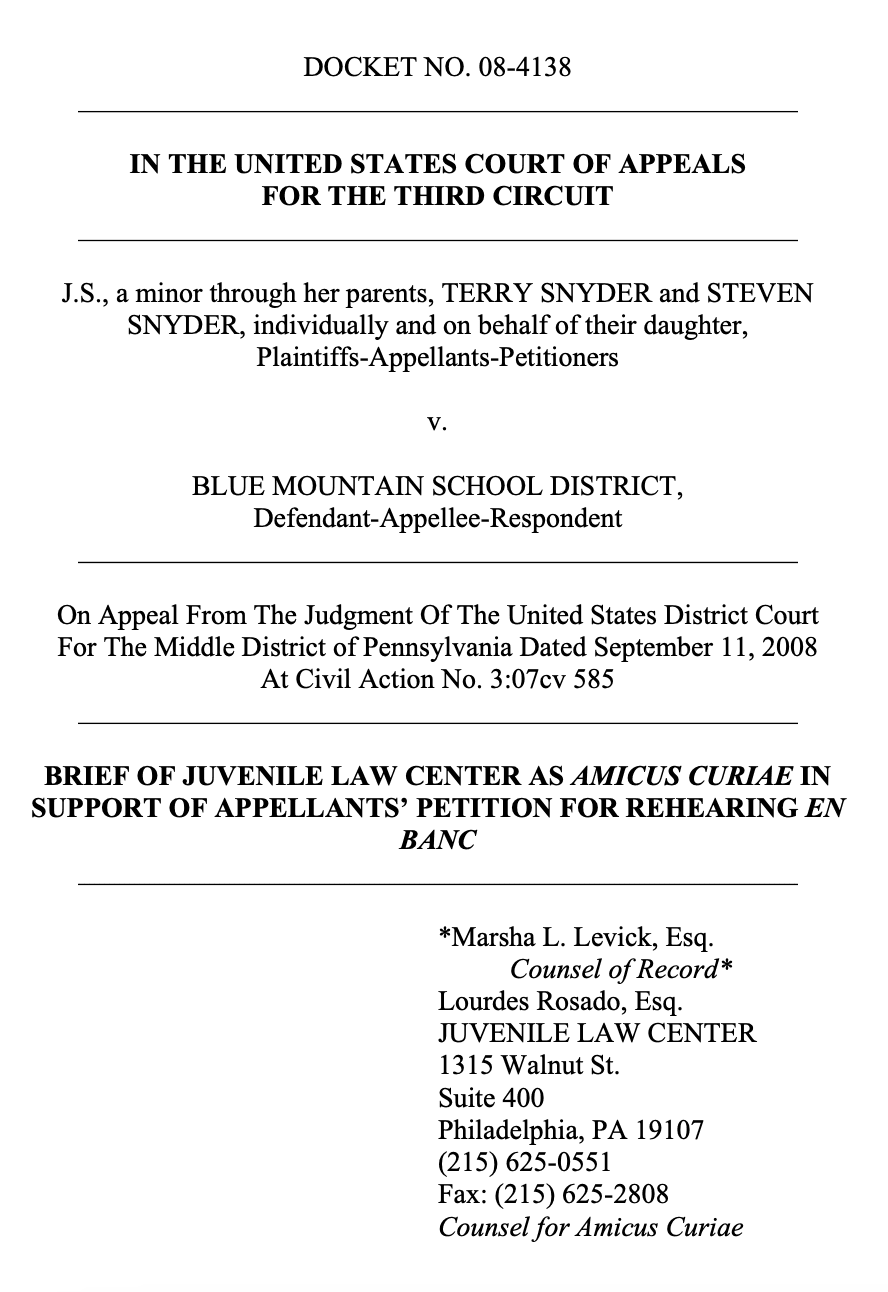
Summary of Argument
While perceived by adults as offensive or vulgar, much teenage behavior and expression among their peers is a normative feature of adolescent identity development. Recent research on brain development suggests that adolescent speech deemed objectionable by adults is not only normal, but driven by brain systems that cause teenagers to be sensitive to social status and the rewards of playing to their peers. It is also widely known that teenagers say and do outrageous things among their friends.
Teenagers mocking school administrators is not a new phenomenon. When these expressions contain sexual content, adults commonly imbue them with significance or meaning not shared by the teenagers themselves. Juvenile attempts at humor that, for example, make unspecific joking references to sex addiction, are hardly on par with serious accusations against a school official for child abuse.
Given that this speech is normal, and made outside of the school setting, suspending a student for uttering the speech is unjustified. The panel majority’s expansive opinion below stretches the limited power of school officials to punish student speech beyond reasonable bounds. Allowed to stand, it opens the door to an unprecedented era in which adolescents can be punished for expression that is normal for teenagers, if sometimes uncomfortable for adults. The decision below thus has the potential to drastically alter the First Amendment rights of minors outside of the school setting, and therefore warrants further consideration via rehearing en banc.